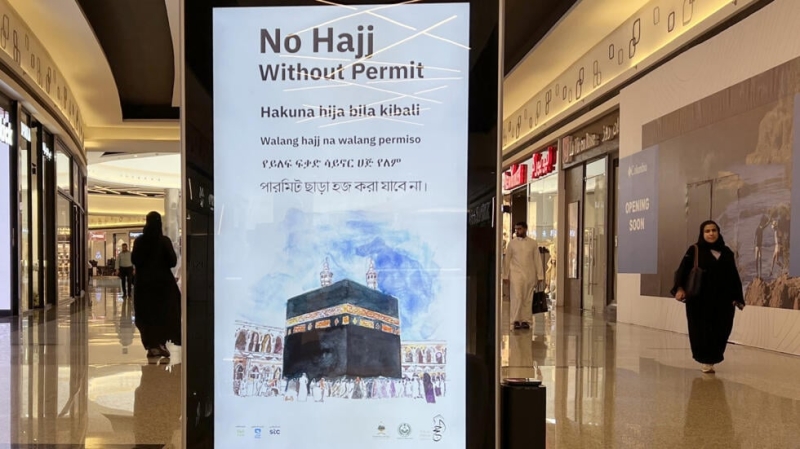- Bangladesh Heads to First Gen Z-Driven Competitive Poll |
- EC Lifts Mobile Phone Ban, Bars Photos Inside Booths |
- Youth participation vital to BD’s democratic future: C’wealth Group |
- Stocks retreat on week’s first trading day as turnover drops |
- Free education for girls up to honours if BNP wins: Zubaida Rahman |
Saudi warns of above-average heat during the hajj

Saudi Arabia said Tuesday pilgrims can expect average high temperatures of 44 degrees Celsius (111 degrees Fahrenheit) during the hajj, which last year saw thousands of cases of heat stress.
"The expected climate for hajj this year will witness an increase in average temperatures of one and a half to two degrees above normal in Mecca and Medina," national meteorology centre chief Ayman Ghulam told a press conference.
The forecast indicates "relative humidity 25 percent, rain rates close to zero, average maximum temperature 44 degrees", he said.
The hajj, which begins on June 14, is one of the five pillars of Islam and must be undertaken at least once by all Muslims who have the means to do so, reports BSS.
It involves a series of rites completed over four days in Mecca and its surroundings in the west of oil-rich Saudi Arabia.
Last year more than 1.8 million Muslims took part in the hajj, official figures showed.
More than 2,000 people suffered heat stress, according to Saudi authorities, after temperatures soared to 48 degrees Celsius (118 degrees Fahrenheit).
However the real number of heat stress cases -- which includes heatstroke, exhaustion, cramps and rashes -- was probably far higher, as many sufferers were not admitted to hospitals or clinics.
At least 240 people -- many from Indonesia -- died during the pilgrimage, according to figures announced by various countries which did not specify causes of death.
Saudi Arabia did not provide statistics on fatalities.
Officials in the kingdom take steps to try to mitigate the effects of heat, including providing air-conditioned tents and misting systems.
Ghulam told Tuesday's press conference there was "a need for sufficient quantities of water to cover daily consumption as temperatures rise".
He also said food for pilgrims should be transported in refrigerators so it does not spoil.
Hosting the hajj is a financial boon for Saudi Arabia and a source of legitimacy for the Saudi monarch, whose title includes "Custodian of the Two Holy Mosques" in Mecca and Medina.

